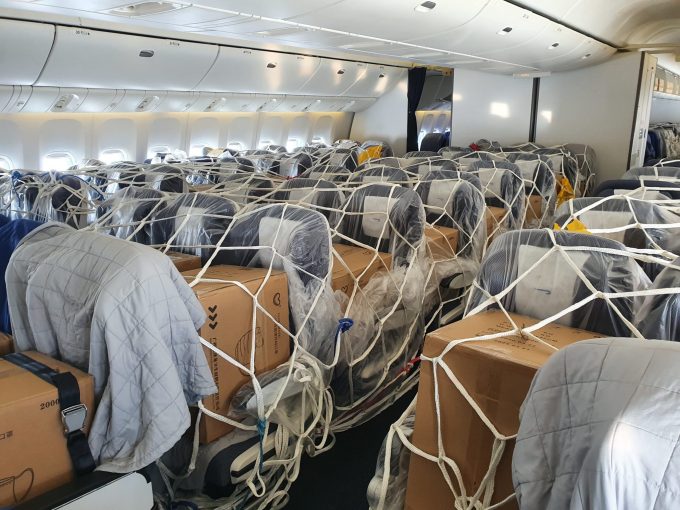Deutsche Bahn sees Schenker sale as key to recovery from 'crisis'
Deutsche Bahn today delivered its 2024 results, enjoying the “very favourable” €19.2bn revenue from DB ...

IAG Cargo’s strategy of setting up a scheduled cargo network of passenger-freighters while the majority of its aircraft were grounded, has paid off.
It has announced that commercial revenues grew 33.1%, at constant currency, to €369m ($437.6m) from 1 April to 31 June, with yields up a staggering 224.7%, and sold tonnes down 51.2%.
IAG Cargo was quick to adjust to Covid and, as the virus rampaged around the world, set up a network of scheduled cargo and charter flights.
One UK customer ...
Outlook for container shipping 'more uncertain now than at the onset of Covid'
Teamsters union vows UPS will be 'in for a hell of a fight' over jobs cull
Shippers warned: don't under-value US exports to avoid tariffs – 'CBP will catch you'
Cancelled voyages take the sting out of spot rate declines this week
New Houthi warning to shipping as rebel group targets specific companies
K+N CEO unveils impact of US import tariffs on China-origin goods
Blanked sailings in response to falling demand 'just a stop-gap solution'
CMA CGM to reflag box ship as the French carrier eyes growing Indian market
More pressure on transpacific rates as carriers bet on a China-US trade deal
Boeing looks to resell up to 50 aircraft rejected by Chinese buyers
'Strong start' to 2025, despite market uncertainty, says Kuehne + Nagel
US Customs chaos means 'more downside risk than upside potential' for air cargo
Taiwan ministries act to mitigate effect of trade war on agriculture exports
Wan Hai joins box shipping 'arms race', but avoids Chinese yards for newbuilds
MOL signs up with Climeworks for direct air carbon capture and storage

Comment on this article